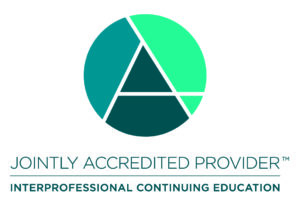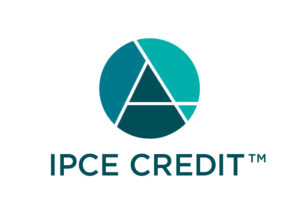Praxis Continuing Education & Training
Exploring Values in ACT
Kelly Wilson, PhD
13 CE credits available
Please read the complete course information below prior to registering.
Target Audience:
This course is for mental health professionals with an intermediate–advanced background in this area. This includes counselors, psychologists, substance abuse counselors, social workers, behavior analysts, physicians, and nurses. It’s relevant to those with ACT experience or those who have at least done an introductory ACT course.
Schedule: (13 hours total)
1. What are values? – The qualities of a value; what it means to “construct” values rather than “identify” them; why values work is important. (98 min)
2. Exploring values with clients – Where and how to begin when approaching values in session; disrupting aversive control and taking clients from a context of limitation to a context of possibility; what are “means” values; how to approach tough clients. (87 min)
3. How values work can inform and be informed by center pillar processes, left pillar processes, and committed action; how to see the different processes as lenses for viewing behavior. (119 min)
4. What is committed action; how to approach committed action effectively with clients; how to help clients explore valued-based actions in a way that disrupts aversive control. (157 min)
5. Addressing stuckness – Why people get stuck; the role of fusion in stuckness; how to productively respond to stuckness in session. (132 min)
6. Values conflicts – Explore how values can feed other values, rather than seeing them as competing forces; how to help clients address indecision and let go of things valued when necessary; resistance or values conflict from partners, family, or others. (157 min)
7. Reads Exercise – How to “read” inflection points during session and what they can reveal about the client’s psychological flexibility around values. (30 min)
Overall Objectives:
At the conclusion of this course, participants will be able to:
1. Define values and the function they play in a client’s life and in the therapeutic process
2. Discuss how to help clients construct values rather than simply identifying them
3. Assess when to implement values work in session with clients for the most effective outcomes
4. Identify strategies for how to use values work even with difficult and resistant clients
5. Discuss how values work relates to other essential pieces of the ACT model
6. Identify how core processes of psychological change are lenses through which to view behavior
7. Define committed action and the function it plays in a client’s life and the therapeutic process
8. Examine how to implement committed action, based on values work, in a way that disrupts aversive patterns in a client’s life and builds patterns for change
9. Identify techniques for getting unstuck in values and committed action work with clients
10. Identify how to productively respond to “stuckness” in session
11. Discuss how to help clients work through perceived values conflicts and describe how values can inform, instead of compete with, one another
12. Identify techniques for deepening the therapeutic relationship through an exploration of values
13. Identify inflection points during session and assess clients’ psychological flexibility around values
Grievance Procedures for CE Activities
Should a participant in the course be unsatisfied with the course, the participant should immediately contact our customer support team to file a grievance. Within five days, a customer support team member will contact the participant by email and/or phone and attempt to resolve the issue.
We will investigate and assess the issue from the perspective of the participant and every effort will be made to resolve the issue. If the issue is not resolved to the satisfaction of the participant, the participant will be offered a refund per the Refund and Cancellation Policy guidelines.
To file a grievance, please contact us at courses@praxiscet.com.
ADA Accommodations
To request accommodations for disabilities, please contact Praxis Continuing Education at courses@praxiscet.com.
Contact Information:
The Exploring Values in ACT team can be contacted at courses@praxiscet.com
Praxis Continuing Education
5674 Shattuck Avenue
Oakland, CA 94609 USA
CE Information:
This non-live online course is sponsored by Praxis Continuing Education and Training and is approved for 13 CE Hours by the organizations listed below. Praxis CET maintains responsibility for the program with the CE approvals outlined below:

Joint Accreditation: In support of improving patient care, Praxis Continuing Education and Training, Inc. is jointly accredited by the Accreditation Council for Continuing Medical Education (ACCME), the Accreditation Council for Pharmacy Education (ACPE), and the American Nurses Credentialing Center (ANCC), to provide continuing education for the healthcare team.
IPCE: This activity was planned by and for the healthcare team, and learners will receive 13
Interprofessional Continuing Education (IPCE) credits for learning and change.
Nursing: Praxis Continuing Education and Training, Inc. designates this activity for a maximum of 13 ANCC contact hours.
Physicians: Praxis Continuing Education and Training, Inc. designates this enduring material activity for a maximum of 13 AMA PRA Category 1 Credits™. Physicians should claim only the credit commensurate with the extent of their participation in the activity.

Psychologists: Continuing Education (CE) credits for psychologists are provided through the co-sponsorship of the American Psychological Association (APA) Office of Continuing Education in Psychology (CEP). The APA CEP Office maintains responsibility for the content of the programs.
Social Workers: As a Jointly Accredited Organization, Praxis Continuing Education and Training, Inc. is approved to offer social work continuing education by the Association of Social Work Boards (ASWB) Approved Continuing Education (ACE) program. Organizations, not individual courses, are approved under this program. Regulatory boards are the final authority on courses accepted for continuing education credit. Social workers completing this course receive 13 clinical continuing education credits.
Drug and Alcohol Counselors: This course has been approved by Praxis Continuing Education and Training, Inc. as a NAADAC Approved Education Provider, for 13 CE hours. NAADAC Provider #165310, Praxis Continuing Education and Training, Inc. is responsible for all aspects of its programming.

National Counselors: Praxis Continuing Education and Training, Inc. has been approved by NBCC as an Approved Continuing Education Provider, ACEP No. 6759. Programs that do not qualify for NBCC credit are clearly identified. Praxis Continuing Education and Training, Inc. is solely responsible for all aspects of the programs.
Behavior Analysts: Praxis CET is an approved BACB ACE Provider # OP-17-2718.
NY Counselors: Praxis Continuing Education and Training, Inc. is recognized by the New York State Education Department's State Board for Mental Health Practitioners as an approved provider of continuing education for licensed mental health counselors #MHC-0198.
NY Social Workers: Praxis Continuing Education and Training, Inc. is recognized by the New York State Education Department's State Board for Social Work as an approved provider of continuing education for licensed social workers #SW-0467.
NY Psychologists: Praxis Continuing Education and Training, Inc. is recognized by the New York State Education Department's State Board for Psychology as an approved provider of continuing education for licensed psychologists #PSY-0002.
NOTE: Many state boards accept offerings accredited by national or other state organizations. If your state is not listed, please check with your professional licensing board to determine whether the accreditations listed are accepted.
CE Course Launch Date: 8/2021
Expiration Date/Next scheduled review date: 8/2024
Disclosure of Relevant Financial Relationships
Praxis Continuing Education and Training is responsible for the content, quality, and scientific integrity of all CE activities certified for credit. When an educational activity is offered for medical (CME), Nursing (ANCC), and/or Psychology (APA) continuing education credit, participants must be informed as to the source, amount, nature, and disposition of any funding used to support the activity, whether in the form of educational grants, cash contributions, or in-kind contributions. Individuals in a position to influence course content must also disclose whether they have one or more relevant financial relationships with ineligible companies.
We define ineligible companies as those whose primary business is producing, marketing, selling, re-selling, or distributing healthcare products used by or on patients. There is no minimum financial threshold; individuals must disclose all financial relationships, regardless of the amount, with ineligible companies. We ask that discloses are made regardless of whether the individual views the financial relationships as relevant to the education. For more information on the Standards for Integrity and Independence in Accredited Continuing Education, please visit accme.org/standards.
All those in a position to control the content of an education activity are asked to disclose any relevant financial relationships they have with any ineligible companies.
There is no commercial support for this activity.
None of the planners or presenters for this educational activity have relevant financial relationship(s) to disclose with ineligible companies whose primary business is producing, marketing, selling, re-selling, or distributing healthcare products used by or on patients.
How to Obtain Your CE Certificate:
After completing the course, please follow these steps to access your course evaluation, post-test (when applicable), and CE certificate. To receive credit, you must complete the course in full, pass the post-test with an average score of 80% or higher, and complete the course evaluation. No partial credit will be awarded. Please read through all of the instructions below before proceeding.
- Once you have completed all the modules and have taken the post-test for each module, go to the “Evaluation” tab on the course menu.
- If you have passed the post-tests with a cumulative average score of 80% or higher, the course feedback evaluation will be made available to you on the Evaluation page. You will be allowed to retake each post-test only once if you do not pass with an 80% or higher average.
- After submitting the feedback evaluation, a button will appear that will allow you to download your certificate.
We encourage members to submit the feedback evaluation within 6 months of course completion to earn their CE certificate.
Technical Requirements:
In order to complete this course, attendees will need:
- A computer with a monitor, keyboard, and a mouse or a mobile device/tablet
- Speakers/headphones: either built‐in to your computer/device or external (plugged into your computer)
- An internet connection, either wired or wireless. A minimum connection speed of 3 megabits is required to stream clear, standard definition video.
- The course is supported on most up-to-date internet browsers (Google Chrome, Safari, Firefox, Microsoft Edge, Brave, etc.)
- A PDF viewer such as Adobe Acrobat Reader
- An email address
- [Optional] A mixed media player (such as iTunes/Windows Media Player) to listen to downloadable audio exercises. These are also available within the members area so this is not a strict requirement.
- [Optional] A printer or access to a printer (to print any of the PDFs, if desired)
- [Optional] A Facebook account for access to the Exploring Values in ACT community group
References:
1) Baier, A. L., Kline, A. C., & Feeny, N. C. (2020). Therapeutic alliance as a mediator of change: A systematic review and evaluation of research. Clinical Psychology Review, 82, 101921. DOI: 10.1016/j.cpr.2020.101921
2) Bramwell, K., & Richardson, T. (2017). Improvements in Depression and Mental Health After Acceptance and Commitment Therapy are Related to Changes in Defusion and Values-Based Action. Journal of Contemporary Psychotherapy, 48(1), 9–14. DOI: 10.1007/s10879-017-9367-6
3) Wersebe, H., Lieb, R., Meyer, A. H., Hoyer, J., Wittchen, H.-U., & Gloster, A. T. (2017). Changes of valued behaviors and functioning during an Acceptance and Commitment Therapy Intervention. Journal of Contextual Behavioral Science, 6(1), 63–70. DOI: 10.1016/j.jcbs.2016.11.005